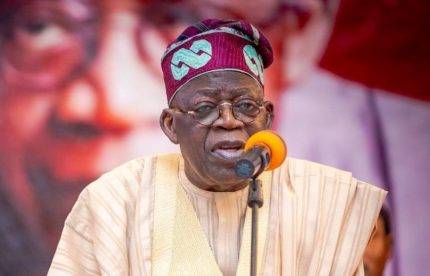The Federal Government of Nigeria has proposed a national minimum wage of N62,000, a move that is expected to improve the standard of living for many Nigerians. This increase will provide much-needed relief to workers who have been struggling to make ends meet due to the high cost of living. The adjustment of the minimum wage is a positive step towards reducing poverty and inequality in Nigeria.
The proposed increase is a welcome development for many workers in the country. However, organized labour is pushing for a higher minimum wage of N250,000, a significant adjustment from their initial request of N494,000. The move to raise the minimum wage reflects Federal Government’s commitment to improving the welfare of its citizens. It is crucial for workers to be fairly compensated for their labor and to have a decent standard of living.
Organized Labour Adjusts Minimum Wage Request
Organized labour has adjusted its requested minimum wage from N494,000 to N250,000, a move that shows a willingness to compromise and find a solution that is acceptable to both parties. The adjustment is a positive step towards finding a balance that is fair and sustainable for all stakeholders. Labour unions have been advocating for better wages for workers, and the adjustment of the minimum wage is a significant step towards achieving this goal.
The adjustment of the minimum wage will have a positive impact on the overall economy. When workers are paid a fair wage, they are more likely to spend money on goods and services, which will stimulate economic activity. This increase in consumer spending will benefit businesses and help to create more jobs in the long run. The move to raise the minimum wage reflects the government’s commitment to improving the welfare of its citizens.
Minimum Wage Increase to Boost Economic Activity
The proposed increase in the national minimum wage is expected to boost economic activity in the country. When workers are paid a fair wage, they are more likely to spend money on goods and services, which will stimulate economic activity. This increase in consumer spending will benefit businesses and help to create more jobs in the long run. The adjustment of the minimum wage is a positive step towards reducing poverty and inequality in Nigeria.
The decision to raise the minimum wage reflects the government’s commitment to improving the welfare of its citizens. It is crucial for workers to be fairly compensated for their labor and to have a decent standard of living. By increasing the minimum wage, the government is taking a step towards promoting economic growth and improving the standard of living for its citizens.
Federal Government and Labour Unions in Talks Over Minimum Wage
The federal government and labour unions are in talks over the proposed national minimum wage. The government has proposed a minimum wage of N62,000, while labour unions are pushing for a higher minimum wage of N250,000. The move to raise the minimum wage reflects the government’s commitment to improving the welfare of its citizens. It is crucial for workers to be fairly compensated for their labor and to have a decent standard of living.
The talks between Federal Government and labour unions are ongoing, with both parties working towards finding a solution that is acceptable to all. The adjustment of the minimum wage is a positive step towards reducing poverty and inequality in Nigeria. By increasing the minimum wage, Federal Government is taking a step towards promoting economic growth and improving the standard of living for its citizens.
Federal Government: Minimum Wage Increase to Improve Standard of Living
The proposed increase in the national minimum wage is expected to improve the standard of living for many Nigerians. The adjustment of the minimum wage is a positive step towards reducing poverty and inequality in Nigeria. The move to raise the minimum wage reflects Federal Government’s commitment to improving the welfare of its citizens. It is crucial for workers to be fairly compensated for their labor and to have a decent standard of living.
The proposed increase is a welcome development for many workers in the country. The adjustment of the minimum wage will have a positive impact on the overall economy. When workers are paid a fair wage, they are more likely to spend money on goods and services, which will stimulate economic activity. This increase in consumer spending will benefit businesses and help to create more jobs in the long run.
Federal Government: Labour Unions Defend Requested Minimum Wage
Labour unions have defended their requested minimum wage of N250,000, stating that it is a fair and reasonable amount. The unions have been advocating for better wages for workers, and the adjustment of the minimum wage is a significant step towards achieving this goal. The move to raise the minimum wage reflects Federal Government’s commitment to improving the welfare of its citizens.
The labour unions have argued that the proposed minimum wage of N62,000 is not sufficient to meet the needs of workers. The unions have called for a higher minimum wage that will enable workers to meet their basic needs. The talks between Federal Government and labour unions are ongoing, with both parties working towards finding a solution that is acceptable to all.
Table of Contents
Discover more from OGM News NG
Subscribe to get the latest posts sent to your email.














